Last updated on 2025-05-08
Konica Leica L39 large aperture semi-standard lens
A review and photo examples of Hexanon 60mm F1.2 with digital and film camera.
Table of contents
Gallery
- Photo example1(KONICA HEXAR-RF +VELVIA 50 +NIKON LS-50)
- Photo example2(LEOTAX F +lomography Lady grey B&W400 +DiMAGE Scan Multi PRO)
- Photo example3(LEICA M10)
Review
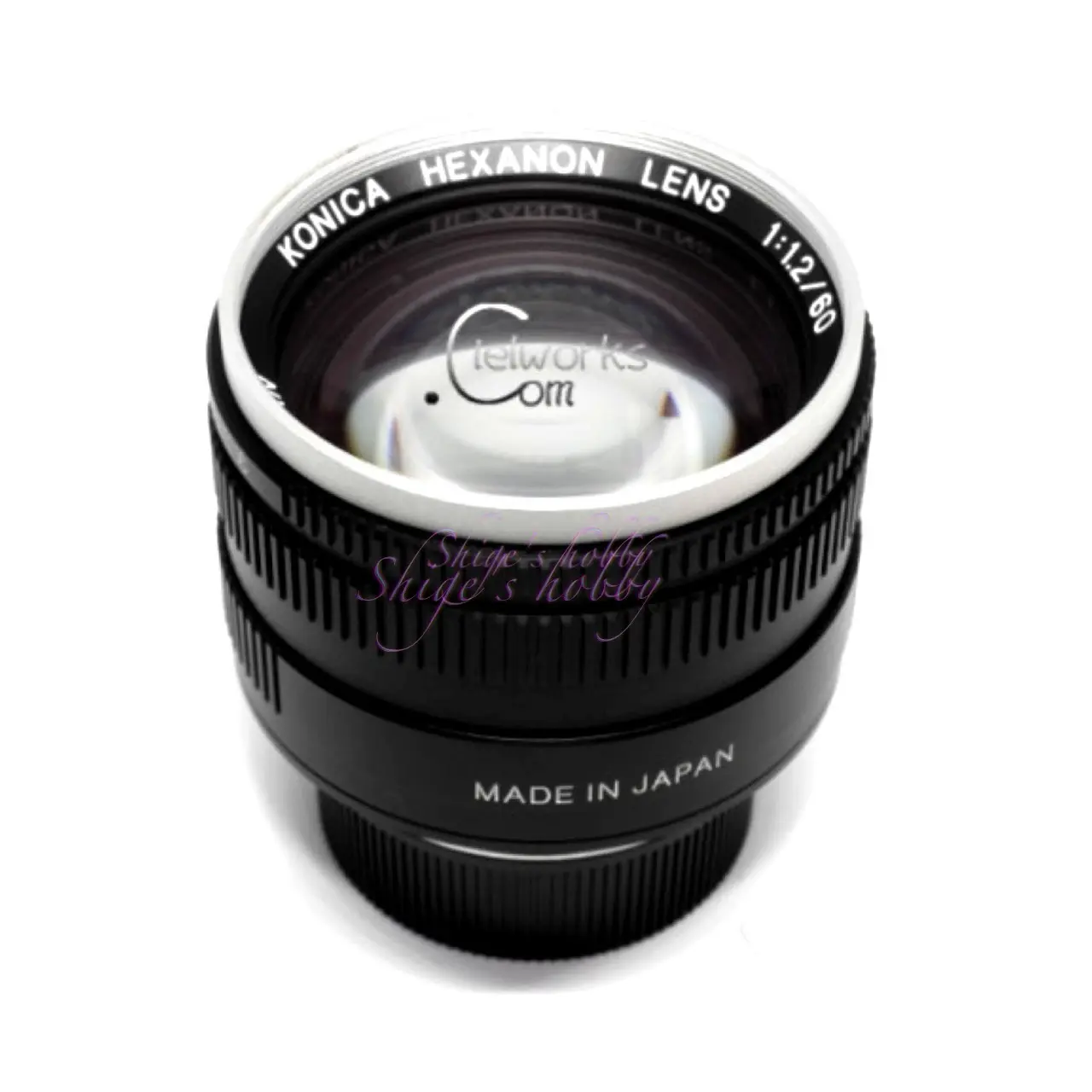
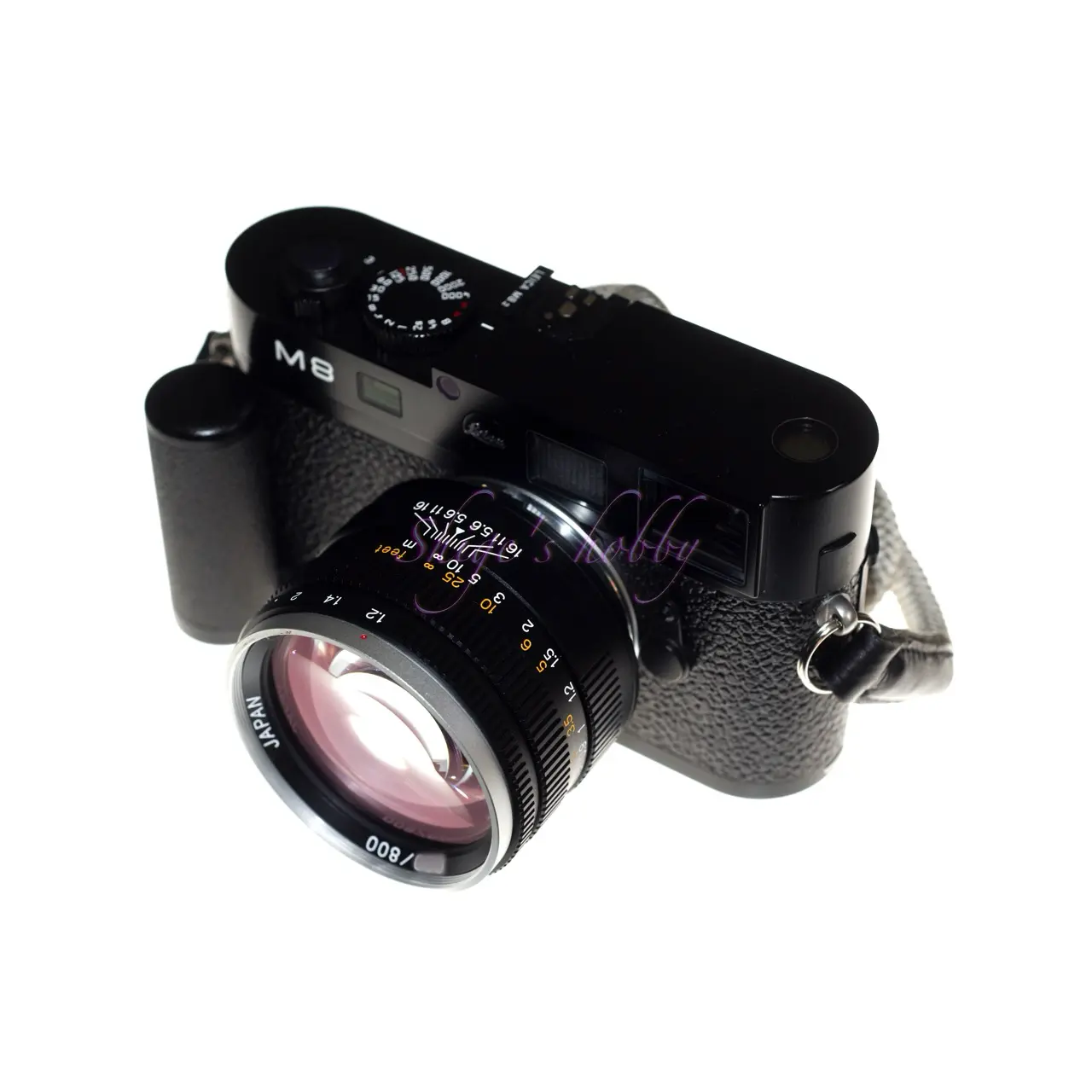
1.Overview
The Hexanon 60mm F1.2 is a Leica L39 screw mount lens planned by Fujisawa Shokai, a limited edition of 800 units of a 60mm F1.2 lens with the same specifications previously released by Konishiroku Photo Industry.
The lens is a Gaussian type with 7 elements in 6 groups, with a minimum shooting distance of 0.8m and an aperture of F1.2.
The lens hood is a cylindrical hood with a slit, and because the hood diameter is large, it covers the eyepiece of a rangefinder camera, making it difficult to see. A dedicated 60mm viewfinder and 58mm filter to match the lens are included.
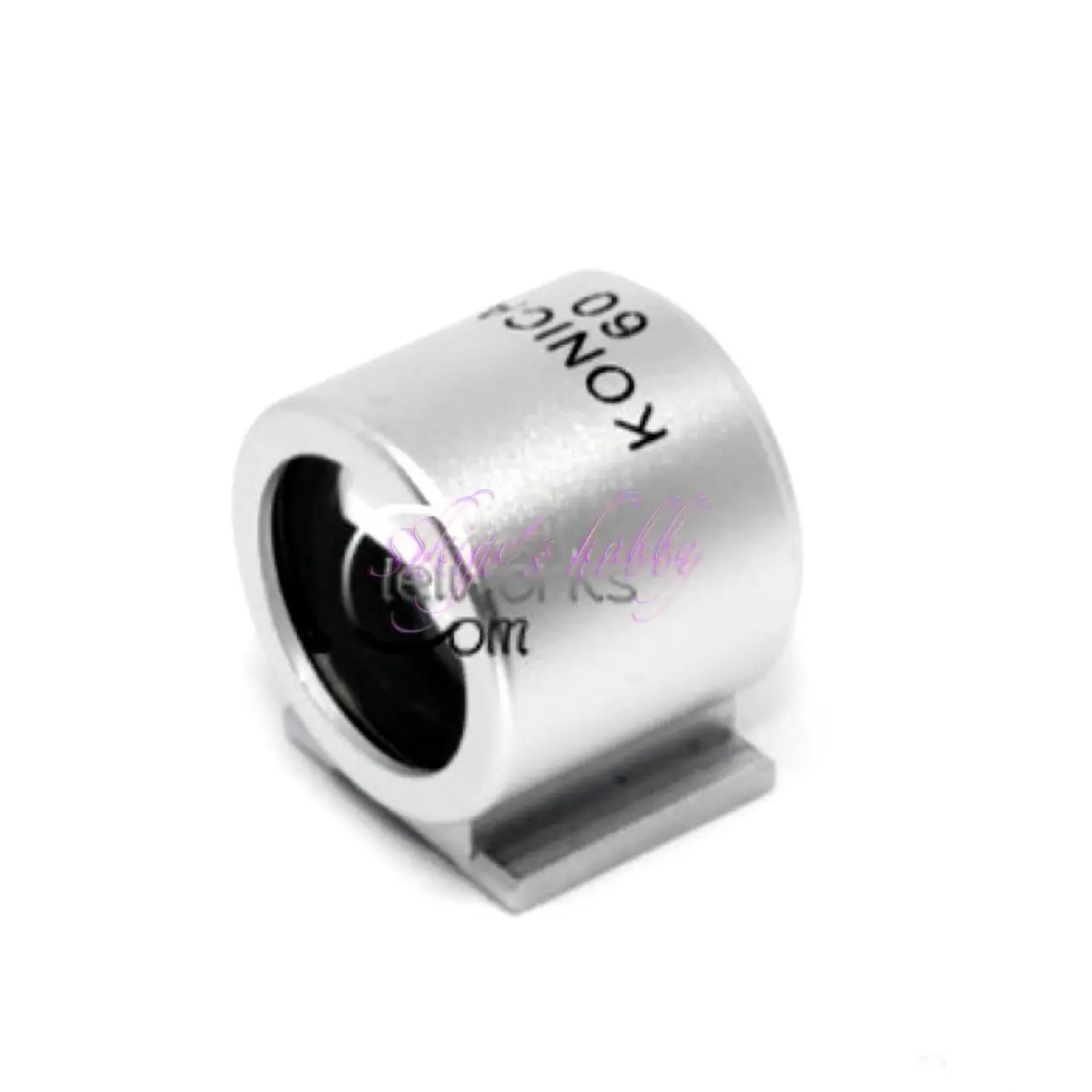
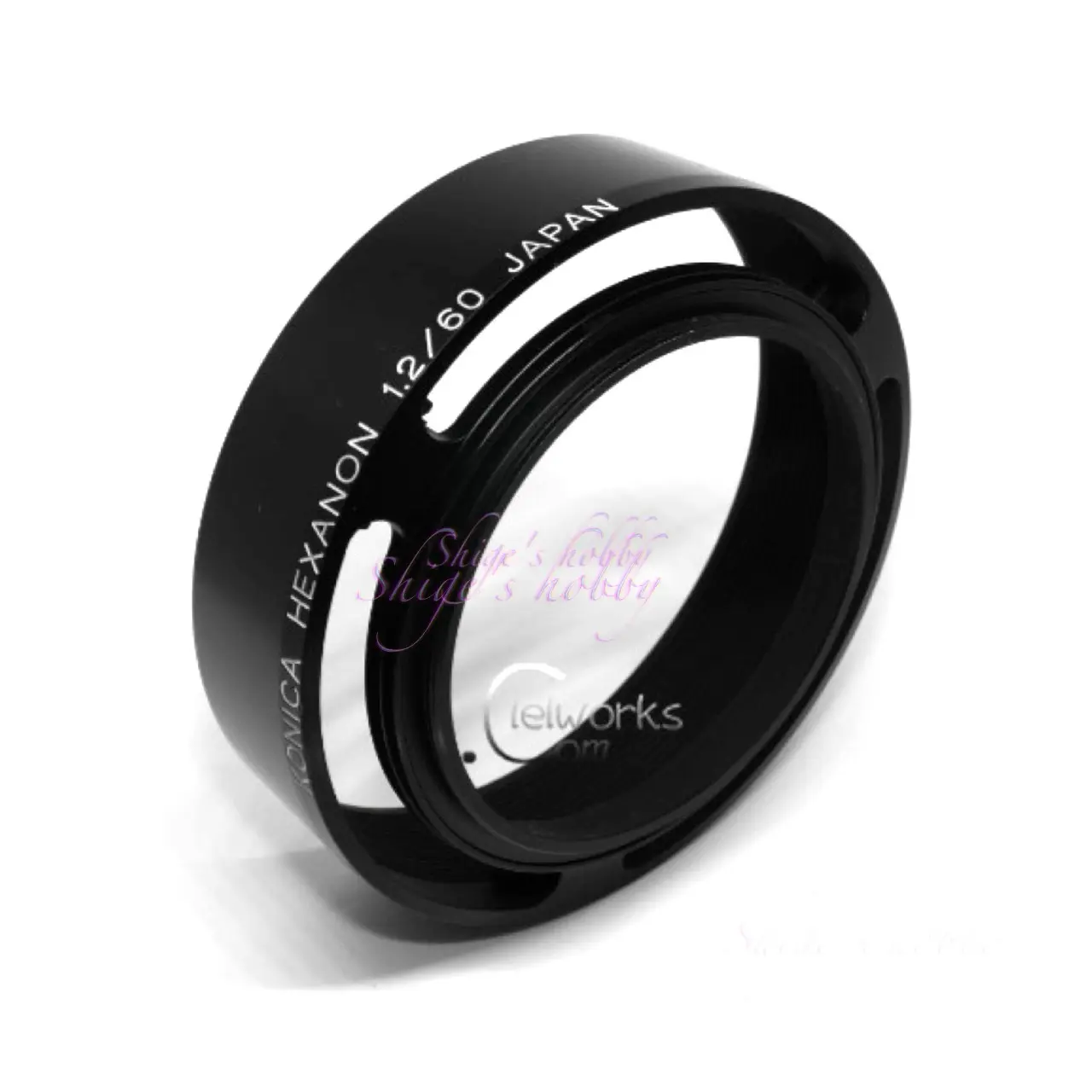
2.Usability
I bought the Hexanon 60mm F1.2 second-hand at a camera shop in Ueno in February 2008. The lens serial number is a two-digit number out of 800 produced.
I like this lens and have kept it on hand for a long time because I can get satisfactory images even at full aperture. It is also resistant to backlight, so I don’t use the huge lens hood that comes with it.
One of the features of this lens is that while older large-aperture lenses have a minimum shooting distance of 1m, this lens can get as close as 0.8m. This extra 0.2m is very reassuring. Also, the focal length of 60mm is 10mm longer than the standard 50mm, so you can capture the subject larger.
With an M-type Leica, you shoot slightly inside the 50mm frame, and with a mirrorless camera, you use the EVF, so you rarely use a dedicated viewfinder. I thought so, but I used it when using this lens with the LEOTAX F, a Barnack Leica compatible camera.
Obviously, the Hexanon 60mm mount is an L39 screw mount, so it can be attached to a Barnack Leica or a compatible camera.
The 50mm viewfinder on my LEOTAX F was worn out, so it was hard to confirm the alignment of the double image, but I managed to focus on the intended spot. I was able to check the composition and shooting range without any problems using the included 60mm viewfinder.

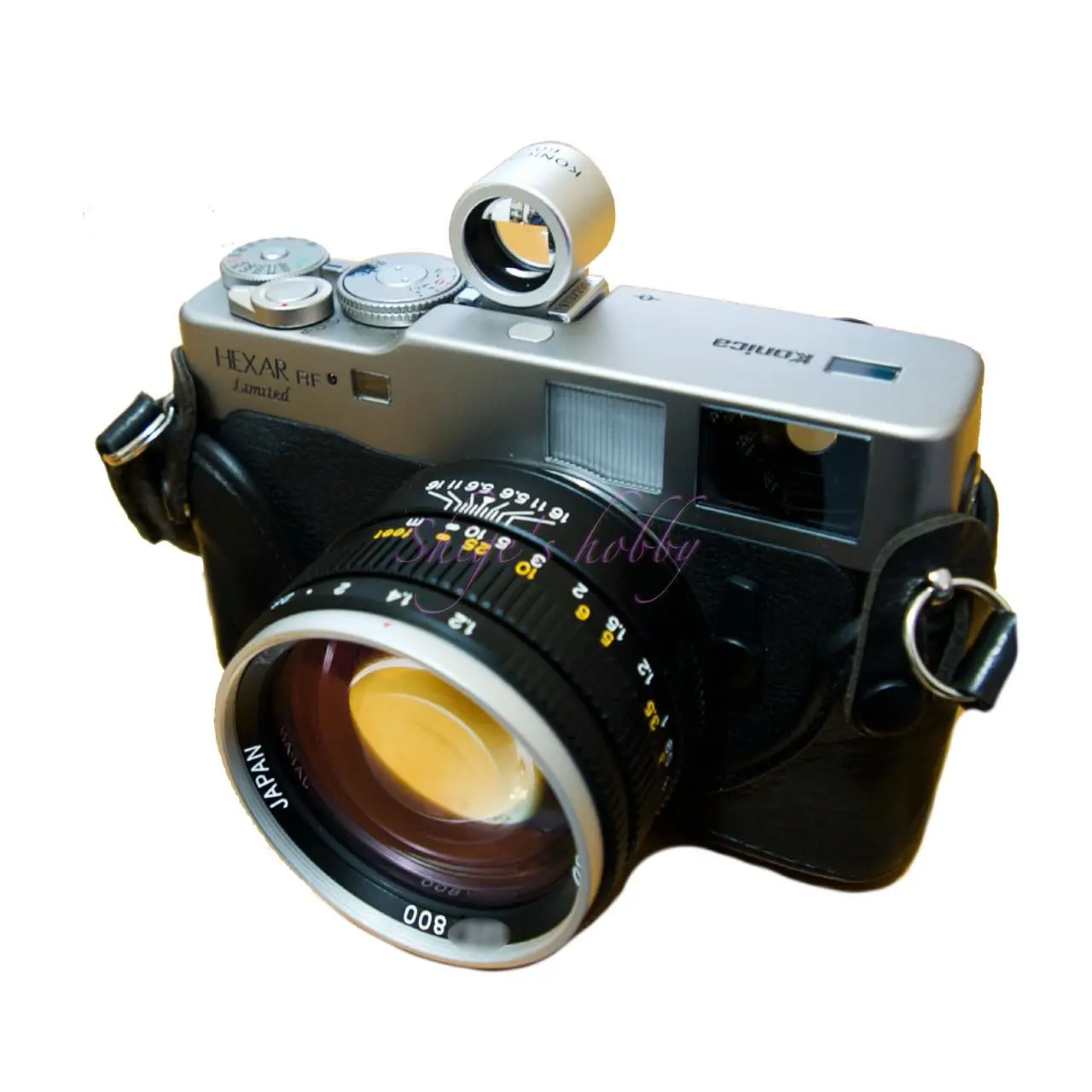
I used it on the Hasselblad X1D and X2D equipped with a medium-format digital sensor (44 x 33mm) via an X-M mount adapter, and the image circle of the lens seemed to be generous, so there was no extreme vignetting or image distortion in the results. FUJIFILM’s GFX has the same sensor size, so it may be possible to use it without any problems.
When I was creating an introductory page for this lens on another site, I received an email from an overseas enthusiast asking me to sell him the lens. There are lens enthusiasts all over the world. Due to the extremely high price, this lens has become relatively easy to find on the used market, but if I were to pay that much, I would rather buy a Noctilux.
Also, in the 2020s, the predecessor of this lens, the old Hexanon 60mm F1.2 released in 1955, is traded for a price that would be enough to buy a decent luxury car if it was in perfect condition. The lens configuration is different between the old and new models. An explanation of this is written in “Leica Lenses of the World Part 2” by Photo Industry Publishing.
- The article category is SONY because the technology has been passed down from KONICA to KONICA MINOLTA to SONY.
3.Summary
In conclusion, to sum up the Hexanon 60mm F1.2, it is a large-aperture standard lens that can get close, among older lenses.
The lens barrel design is simple, with a cylindrical silver rim decoration, and when attached to the camera it gives an understated appearance that does not stand out too much.
Because it is an L39 screw mount lens, it has the advantage of allowing relatively new large-aperture lenses to be used with a Barnack Leica.
Large-aperture standard lenses
Japanese camera manufacturers prefer to release large-aperture models for standard lenses, and there are many 50mm large-aperture lenses for the L39 mount, such as the Zunow 50mm F1.1, Canon 50mm F1.2, Fujifilm 50mm F1.2, and Nikon 50mm F1.1. Lenses other than Zunow were available at reasonable prices in the 2000s. However, as of 2024, more than 50 years after their manufacture, the prices of these large-aperture lenses have risen significantly due to a decrease in their numbers.
The designs of all of these lenses are old, and the glass is likely to deteriorate, so they are not suitable for normal photography, and are therefore likely to be valuable as museums or as part of enthusiast collections.
There are many options for modern large-aperture standard lenses, starting with Leica’s Noctilux, followed by the 50mm F1 and 50mm F1.1 from Voigtlander, the Sonnetar 50mm F1.1 and GA-ISM 50mm F1 from Ms-optics (Miyazaki Optical), and a number of F1-class lenses from Chinese manufacturers.
Specification and Competitor
I compared the specifications of the old and new Hexanon 60mm F1.2. The old version has three lenses glued together in the rear group, and the lens configuration resembles a Sonnar type, giving the impression of an old design. The new model is an orthodox double Gauss type that gives a sophisticated impression.
- The lens configuration diagrams are quoted from the handouts of each company, and the sizes have been adjusted here, so they are not exact.
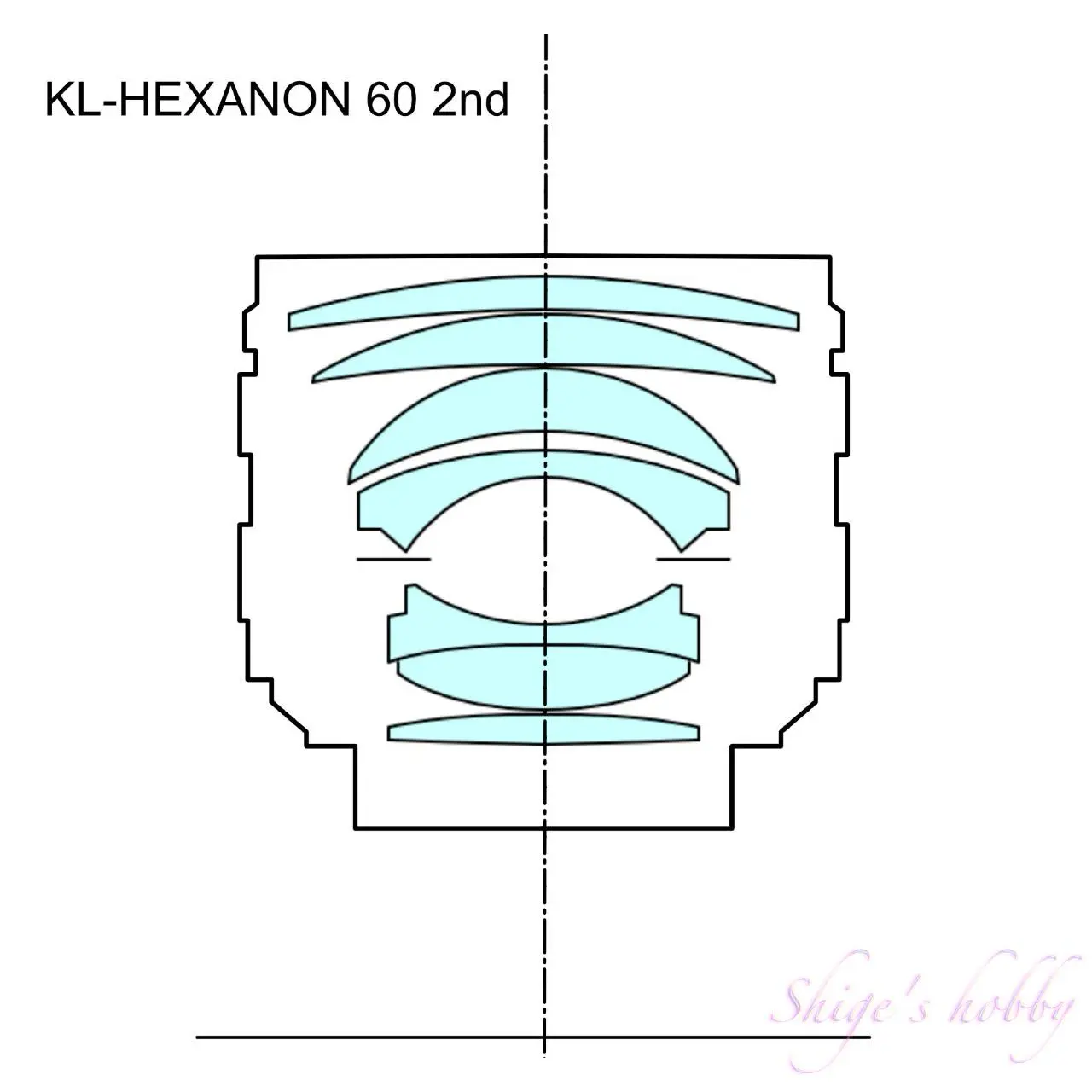
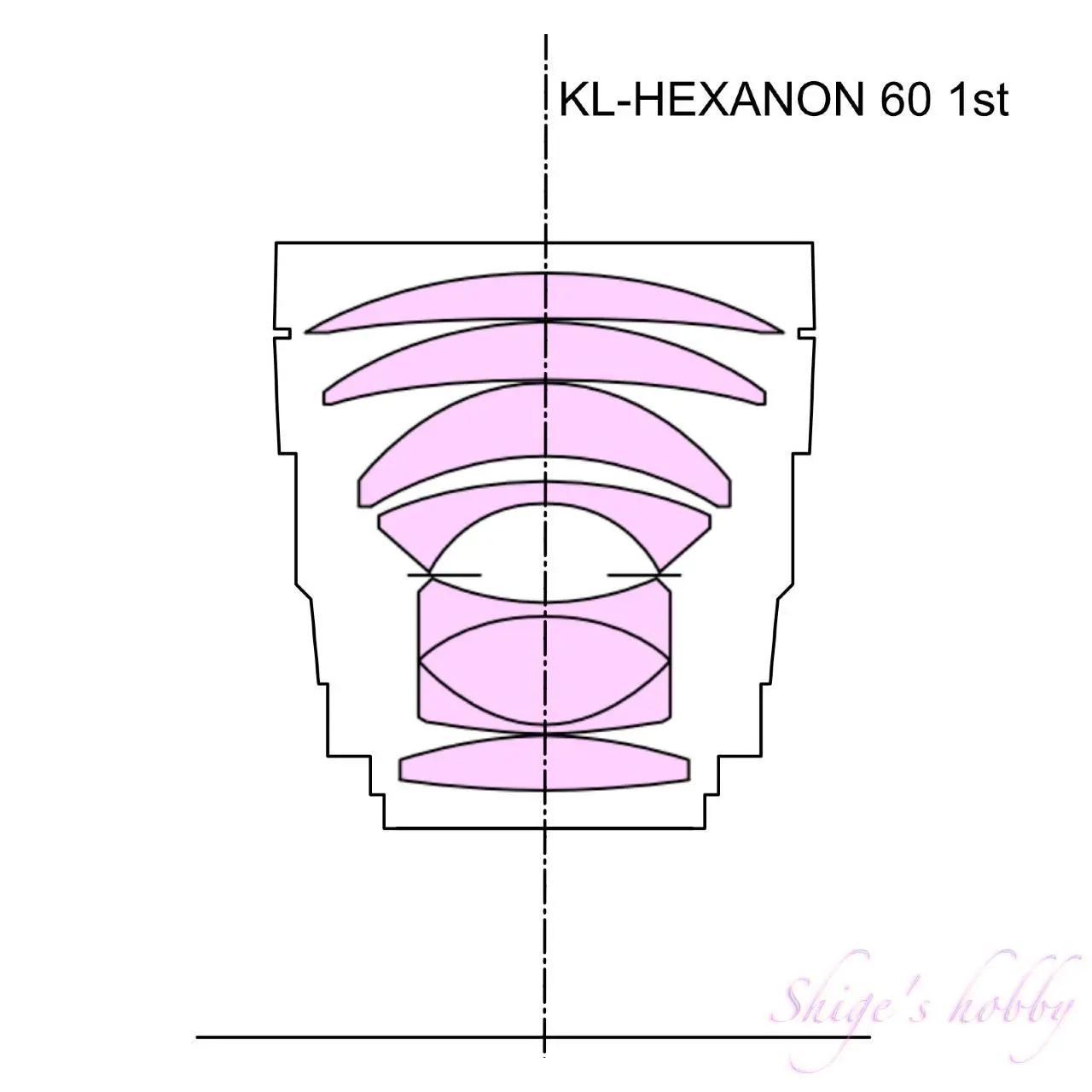
| Item | HEXANON 60(New) | HEXANON 60(Old) |
| focal length(mm) | 60 | 60 |
| Maximum aperture | 1.2 | 1.2 |
| Minimum aperture | 16 | 16 |
| Leaf blade | 7 elements in 6 groups | 8 elements in 6 groups |
| Lens configuration | 10 | ? |
| Minimum distance(m) | 0.8 | 3.5feet(1m) |
| Lens length(mm) | 51.5(from L39) | 51.5(from L39) |
| Lens max diameter(mm) | 64 | 60 |
| Filter type | 58 Silver-colored special edition available | 58 |
| Weight(g) | 388 Lens + L/M adapter | 410 Lens only |
| Hood | Cylindrical slit type/screw-in | ? |
| Lens mount | L39 screw | L39 screw |
| Release date | 1999 | 1956 |
| Production numbers | 800 | ? |
| Price | ¥190,000 | ¥78,000 |
Reference links
- 60mm F1.2 in the Konishiroku era / Camera-Wiki.org(英語)
- Konica HEXANON 60mm F1.2 / Camera-Wiki.org(英語)
Uodate
- 2025.4.23
- 2024.11.9
- 2024.02.07:Update the article
- 2022.02.01:First draft
Affiliate links
- Please see the disclaimer regarding advertising here.
- Italicized links in the text are advertisement links that take you to other sites.



Be First to Comment